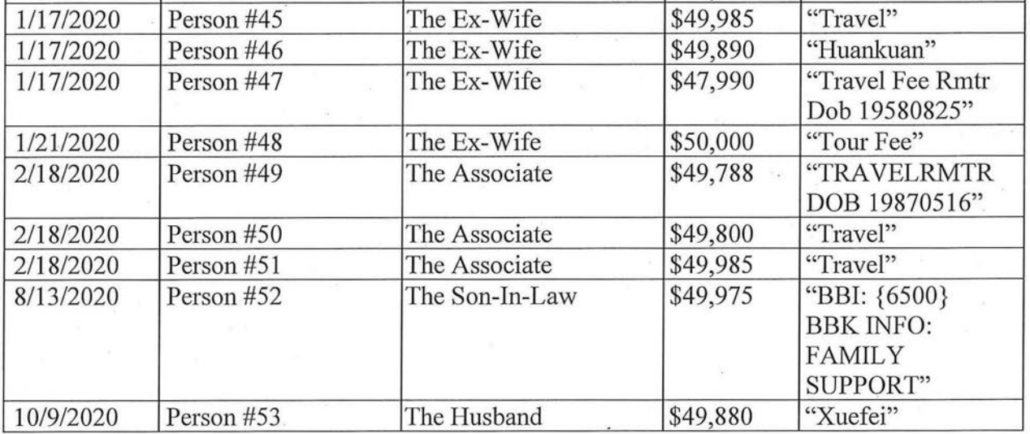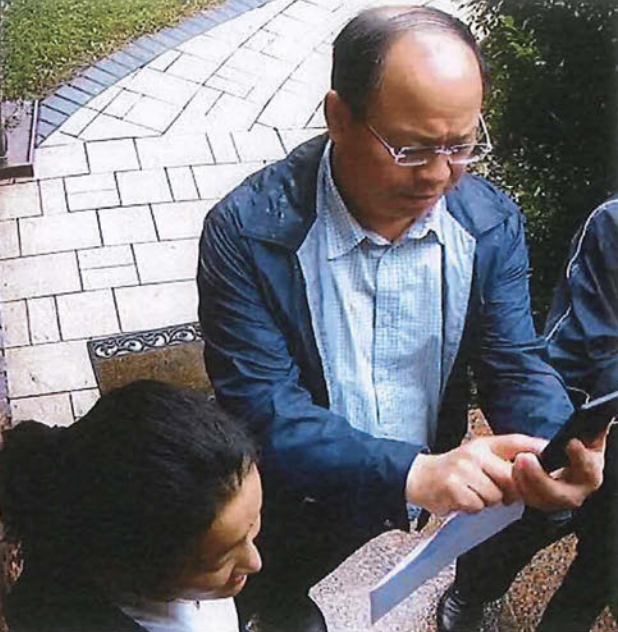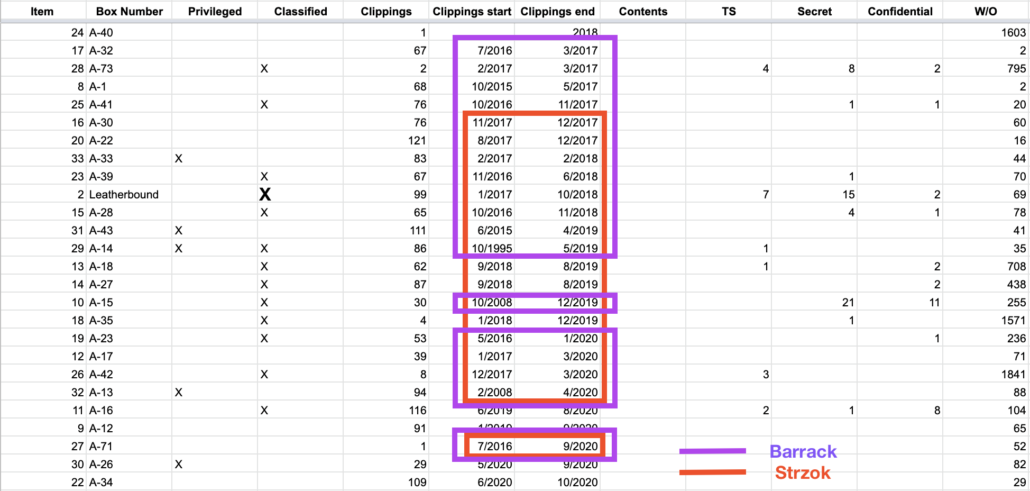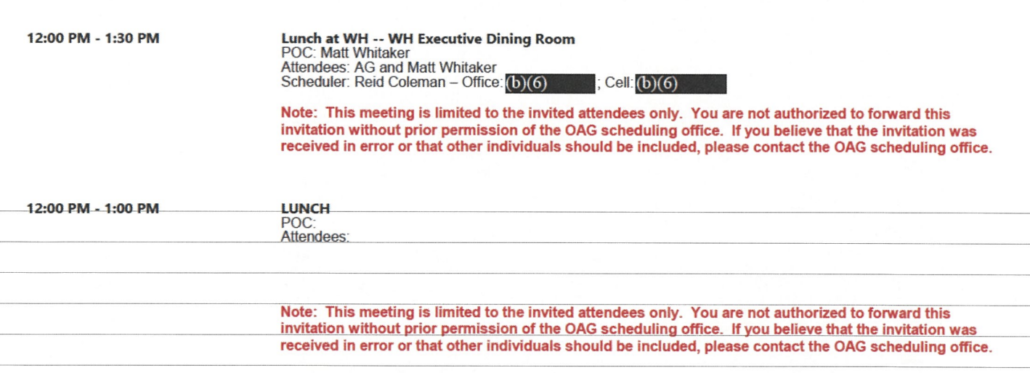Former FBI SAC Charles McGonigal Indicted for Crimes Spanning from 2017 to 2021
When I said on Saturday that, “I wouldn’t be surprised if there were a few stray indictments [relating to Oleg Deripaska] we haven’t seen yet,” I wasn’t specifically thinking of former Special Agent in Charge of FBI’s New York Counterintelligence Office, Charles McGonigal, who was arrested that same day in SDNY for conspiring to hide that he was working for Deripaska.
Though I had noted Scott Stedman’s report, which itself piggybacked on a Wendy Siegelman catch of a FARA filing from McGonigal’s alleged co-conspirator, Sergey Shestakov, which laid out the relationship.
In fact, DOJ seems to be treating this case — and a DC indictment given less prominence in DOJ’s releases today — as a public integrity prosecution first, and only after that the kind of national security case that the other Deripaska cases have been. That is, this is about how Deripaska and his associates used McGonigal’s alleged corruption to harm national security, and not the way McGonigal made a corrupt decision to work with Deripaska.
DC US Attorney Matthew Graves even suggested that’s the trajectory by which McGonigal came to be working for one of the Russians he should have been hunting. “Covering up your contacts with foreign nationals and hiding your personal financial relationships is a gateway to corruption.”
The DC charges pertain to $225,000 in payments McGonigal took from a former Albanian security official while he was still at the FBI. After taking the payments, McGonigal initiated an investigation into someone lobbying for competing Albanian interests.
According to the nine-count indictment, unsealed today, from August 2017, and continuing through and beyond his retirement from the FBI in September 2018, McGonigal concealed from the FBI the nature of his relationship with a former foreign security officer and businessperson who had ongoing business interests in foreign countries and before foreign governments. Specifically, McGonigal requested and received at least $225,000 in cash from the individual and traveled abroad with the individual and met with foreign nationals. The individual later served as an FBI source in a criminal investigation involving foreign political lobbying over which McGonigal had official supervisory responsibility. McGonigal is accused of engaging in other conduct in his official capacity as an FBI Special Agent in Charge that he believed would benefit the businessperson financially.
Effectively, a top CI official was on the take from someone who then used that influence to take out a rival.
The charges in DC include a bunch of false statements and obstruction counts (though the obstruction could amount to twenty years in prison).
The NY charges accuse McGonigal and Shestakov of working with someone else in an attempt to get Oleg Deripaska’s sanctions lifted.
Even before McGonigal left the FBI, he was doing favors for someone listed as Deripaska’s agent (I’ll come back to him, but I believe his identity, too, is public). Then starting in 2018, McGonigal and Shestakov started working with a law firm, which earlier reporting identified as Kobre & Kim, in an attempt to help Deripaska get his sanctions lifted. Then after K&K stopped pursuing that effort in 2020, McGonigal and Shestakov continued to work for Deripaska, laundering the funds through a Friend (who may be the Albanian, in which case that may be where they discovered the tie to him).
Because of the money laundering in the SDNY indictment, it may in practice include a stiffer sentence than the DC one.
As I said above, on paper (based, in part, on the prosecutors assigned) this is being treated as a public integrity problem that led to a huge counterintelligence one. There’s not even any mention of the KleptoCapture initiative started in response to the Russian war.
But like the Deripaska investigations, I expect this one will continue for a while.
Update: I want to talk a bit about what I mean that these are Public Integrity indictments with a CI twist.
The DC prosecution team consists of two DC USAO attorneys, with the assistance of a senior NSD executive.
The case is being prosecuted by Assistant United States Attorneys Elizabeth Aloi and Michael Friedman of the U.S. Attorney’s Office for the District of Columbia, with assistance from Acting Deputy Chief Evan Turgeon of the DOJ’s National Security Division Counterintelligence and Export Control Section, and the Criminal Division’s Office of International Affairs.
In addition to a bunch of January 6 cases in the last two years, Aloi is on the Navarro team and the case against two guys who pretended to be DHS agents to get close to some FBI agents. Most if not all of her January 6 cases included cooperation agreements. Michael Friedman’s January 6 cases included two involving threats, and two involving movement right wingers, including Zeeker Bozell, the scion of the family.
The DC team seems like one you’d use to try to get McGonigal to cooperate to unwind whatever other fuckery he did at the FBI.
The SDNY prosecution team consists of three public integrity prosecutors and an NSD one.
The case is being prosecuted by the Office’s Public Corruption Unit. Assistant U.S. Attorneys Hagan Scotten, Rebecca T. Dell, and Derek Wikstrom are in charge of the prosecution with assistance from Trial Attorney Scott A. Claffee of the National Security Division’s Counterintelligence and Export Control Section.
All the SDNY prosecutors have been involved with very large multi-defendant conspiracies. Hagan Scotten was involved in the Rudy Giuliani and Parnas Fruman investigation. Derek Wikstrom was on the Build the Wall (Steve Bannon) team.
Scott Claffee has been involved in some of the highest profile Chinese counterintelligence prosecutions. But he’s also involved in at least one of the other Deripaska-related cases, the one involving dual use sourcing.
But by far the most interesting lawyer involved in this case is McGonigal’s defense attorney: Seth DuCharme, a top Billy Barr aide who was at the center of numerous Barr efforts to protect Trump associates.
Including Rudy.
Finally, a word about timing.
The SDNY indictment came first. That indictment is dated January 12.
That press release hails the Border Patrol, and given that the arrest happened at JFK, that may be why SDNY went first.
DC got its indictment on January 18. That same day there was a sealed document placed in the SDNY docket, perhaps related to the other case
Update: Here’s his bio from when he was promoted to the NY position.
Charles McGonigal Named Special Agent in Charge of the Counterintelligence Division for the New York Field Office
FBI Director James B. Comey has named Charles McGonigal as the special agent in charge of the Counterintelligence Division for the New York Field Office. Mr. McGonigal most recently served as the section chief of the Cyber-Counterintelligence Coordination Section at FBI Headquarters.
Mr. McGonigal entered on duty with the FBI in 1996. He was first assigned to the New York Field Office, where he worked Russian foreign counterintelligence and organized crime matters. During his tenure in New York, Mr. McGonigal worked on the TWA Flight 800 investigation, was assigned to the task force investigating Wen Ho Lee, investigated the 1998 terrorist bombings of the U.S. Embassies in Tanzania and Kenya, and investigated the September 11, 2001 terror attacks.
Following the terrorist attacks on September 11, 2001, Mr. McGonigal was assigned to an investigative response squad, which focused on pending international terrorist threats in the New York City area.
Mr. McGonigal was assigned to the Cleveland Division where he investigated white-collar and violent crime matters. In 2002, Mr. McGonigal was promoted to a supervisory special agent in the Counter-Espionage Section at FBI Headquarters, where he handled several high-profile espionage investigations. In April 2004, Mr. McGonigal was promoted to chief of the Asia-Near East Counterintelligence Unit.
In 2006, Mr. McGonigal was promoted to field supervisor of a counter-espionage squad at the Washington Field Office. In this capacity, Mr. McGonigal was in charge of many high-profile espionage, economic espionage and media leak investigations resulting in criminal prosecution. In 2014, Mr. McGonigal was promoted to assistant special agent in charge of the Baltimore Field Office’s cyber, counterintelligence, counterespionage, and counterproliferation programs. Mr. McGonigal earned a Bachelor of Business Administration degree in 1990 and completed a master’s degree from Johns Hopkins University.
Mr. McGonigal will assume this new role at the end of October.
For those trying to assess whether he was a part of the Russian investigation, he largely missed it. I think he would have been in the loop after he moved to NY, but he didn’t show up in the Sussmann trial.



